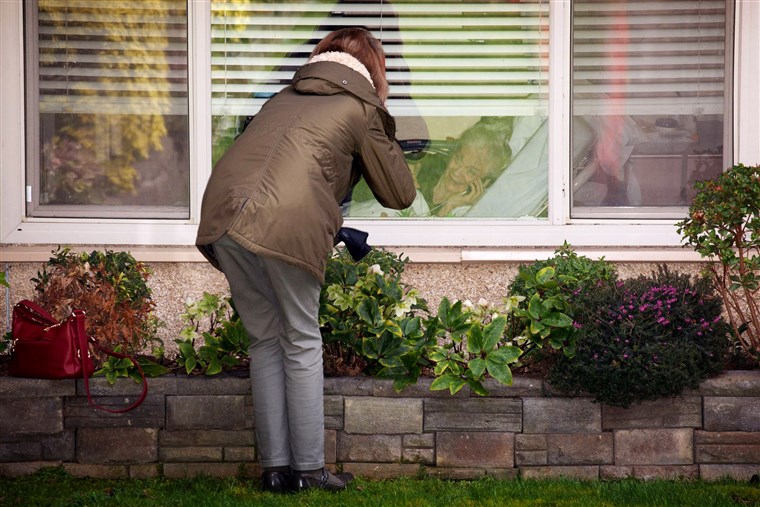
People first –‘Social Care 360’ an article by Neil Crowther
Last week, the Kings Fund published its useful ‘Social Care 360’ report, outlining 20 key trends in social care. The data was collated prior to the Coronavirus pandemic and the Kings Fund notes how the analysis may look radically different on the other side.
The section on ‘quality’ notes that public satisfaction with social care in 2018-19 stood at around 29% ‘a figure that has remained broadly unchanged since 2012.’ This is contrasted with 65% of people who have direct experience of social care who who say that they are ‘very’ or ‘extremely’ satisfied (though this is caveated). The report asks ‘Why, then, are public perceptions of care services not as positive as might be expected?’ and speculates that in addition to the poor quality of some services across the country and the public’s general lack of understanding of what social care is and does, ‘Another factor is likely to be media coverage. There have been several high-profile reports of the very worst care, including abuse, which understandably stick in people’s minds.’
I was surprised not to see reference here to the work of the Centre for Corpus Approaches to Social Sciences, on the media narrative around social care, to #socialcarefuture’s own work on sector messaging and the (admittedly limited to date) work by the Frameworks Institute on public thinking. This analysis has found a clear and consistent pattern linking campaign and sector messaging, media reporting and public thinking in which social care is framed in ways that seem unlikely to enlist positive public perceptions. Specifically, social care is commonly framed as for ‘vulnerable people who need to be looked after’, as ‘broken’ and in need of ‘fixing’, in ‘crisis’ and as a presenting spiralling cost to the public purse, without any apparent value. Individual high profile cases of abuse and neglect certainly inform this narrative, but of more influence is the messaging that continues to be proactively generated by advocates for reform, including the Kings Fund.
Why invest in a sinking ship?
The truth of the matter is that proponents for reform have actively strived to cultivate low public satisfaction with social care as a campaign tactic. The apparent 35% gap between reported user satisfaction and public satisfaction will presumably be seen by some as beneficial, because it is understood to symbolise the public’s unhappiness and desire for change. Yet this understanding isn’t borne out by the evidence. For example, the latest analysis by CASS for #socialcarefuture found that social care barely registered as an issue among the Twitter-using public during the 2019 General Election, despite its apparent greater profile in the mainstream media. Perhaps repeatedly telling the public that a ship is sinking, not giving them hope and direction as to how the disaster can be averted, then asking them to support spending more money on the sinking ship, doesn’t work after all?
When I have raised this before, some have said that they see it as their ‘moral duty’ to ‘speak truth to power.’ This is a powerful argument. However, effective framing should not be confused with hiding the truth. It’s about how a story is told, not avoiding telling it. More crucially, I would argue that the overwhelming moral duty of those organisations claiming to represent the interests of groups affected by social care is to be effective at winning change. Pointing out wrongs, however loudly, may give us a sense of righteousness – and it’s probably helpful in driving donations – but it isn’t always the best way to right those wrongs.
Coronavirus is writing its own story of social care
Now we have the pandemic. We know its devastating impact on those who live in care homes, and on those who work in them. This is national scandal, amounting, I would argue, to a systemic violation of human rights, resulting both from government action and inaction. We have yet to see the impact on people who draw on other forms of social care support, whether in other forms of congregate living or in their own homes or on the people who work in these areas. We can only hope it isn’t as terrible. ‘Speaking truth to power’ in this moment is vital, because it is an emergency. Lives are being avoidably lost. Further loss of life must be prevented. Accountability is everything.
Nevertheless, the impact of this pandemic will extend way beyond its immediate toll on people’s lives, and hence we still need have an eye to the future and the longer-term impacts for care and support.
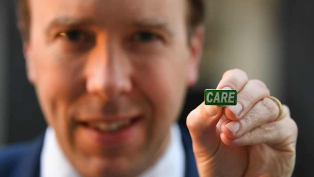
Now I keep seeing people publicly anticipate that the current emergency will cause the public to recognise the importance of social care and the need to fund it sustainably. How could they not value what social care does after all this they ask? I’m afraid I can’t see this at all, unless it comes with a commitment to radically change what social care is, how it works & how it is talked about.
If the public didn’t understand what social care was before the pandemic, they’ll now consider it – wrongly – to be all about care homes. And because of what is happening, care homes will be seen, fairly or unfairly, as places to avoid – as unsafe places where you or your mum, dad, grandma or granddad may die, invisibly and alone. They will be thought of as prisons, which separate families and only allow them to communicate through closed windows, in which older people with dementia spend all their time alone.
Sadly, because the public narrative on social care is being dominated by care homes, these stories will colour any and all debates about the future of social care. This is especially the case given in the midst of the pandemic the government, has imposed the single ‘CARE’ brand on ‘the sector’, obscuring its huge diversity in the name of ‘recognition’. Existing patterns of thinking about social care that associate it with losing dignity and control seem likely to be reinforced, making it harder to promote the idea social care as something that helps us all to maintain or gain things we value
Kicking social care while its down
Some of this is now inescapable. However, on top of this, the sector and some advocates seem now to be turbo-charging the same narratives about social care that had contributed to such low public satisfaction prior to the pandemic: foregrounding the plight of ‘the sector’ not the people supported and the families that look to them to keep their loved ones safe; saying social care ‘was fragile’ and ‘already in crisis’; that it is a ‘Cinderella service’ that isn’t considered to be as important as the NHS; that it is a very large cost to be met, but absent of any clear and compelling articulation of its value save ‘looking after our most vulnerable (read, ‘low worth’) citizens’.
Where do we really imagine public satisfaction with social care will be after the pandemic? And do we imagine public satisfaction lower than 29% will be beneficial in winning support for investment and reform?
There are things leaders and communicators concerned about the future of social care can avoid doing and to start doing now in the way we talk about the current situation and in building the future most of us seek
People first, not sector first
I imagine it’s because of the ‘protect the NHS’ mantra, that some have started to say ‘protect care homes’ or ‘protect social care’. But that ignores how the NHS is not simply a ‘sector’ or ‘organisation’. If that were the case its inclusion at the heart of the Olympic opening ceremony would have made no sense. It was there because it is hardwired into our national identity. Calls to ‘protect the NHS’ resonate because they are calls to protect our national shared values – to protect us all. This doesn’t work for social care because it is not ingrained in our hearts in the same way. But the people we love are. And social care supports the people we love – our mums and dads, grandmas and granddads, brothers and sisters and friends. So stop talking sector, and start talking about protecting and supporting the people that the sector supports and that other people love and care about. Celebrate their lives and achievements as Aisling Duffy did here for example.
People and families, not ‘vulnerable people’
The pandemic has seen the elevation of the words ‘vulnerable/vulnerability’ into the public lexicon. This was already commonplace in discourse around social care. The pandemic has revealed its counter-productive impact. Not only does it cause confusion as to who it applies to, it also undermines social status to a degree that rather than enjoying special ‘protection’, people labelled vulnerable are being abandoned to die in care homes, subject to reductions in social care support and are told they will have to spend months behind closed doors while the rest of the world gets back to ‘normal.’ So, again, don’t talk about ‘the vulnerable’, talk about people, their lives, relationships, current roles and histories. Instil equal worth by celebrating lives and contributions. Talk shamelessly about love. Situate social care as the ‘invisible scaffolding’ that supports people to live their best life. And ensure that your framing speaks to a ‘bigger us’, linking social care to shared values (‘because we care about one another’) rather than ‘them and us’ (‘we care for the most vulnerable’).
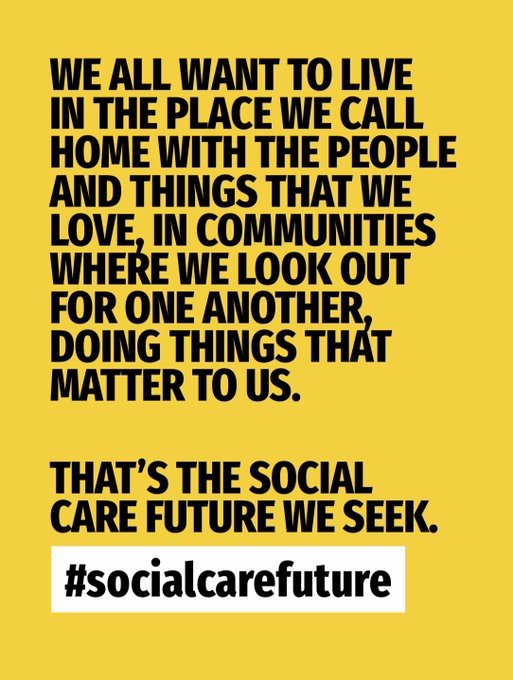
Care and support, not ‘and social care’
Stop trying to align social care to the NHS. The positioning of social care as a pressure valve for the NHS is precisely what facilitated the mass discharge of ‘bed-blockers’ from hospitals to care homes, untested and possibly with fatal consequences. The NHS does not care about social care, save its role as a ‘protector’. Constantly striving to rehearse social care’s value to the NHS reinforces its subservience to the NHS. Stop talking about ‘moving in’ with it. Social care cannot establish equal value in such an unequal relationship, so defining social care against it just diminishes it further still. In your messaging, point away from the NHS and talk about what great social care does that the NHS does not: supports family, relationships, communities, people to establish or maintain meaning and purpose, to live life to the full.
Social care must build its own story and value in the public mind, or it will always remain cast as an expendable ‘extra’ in the NHS’s story.
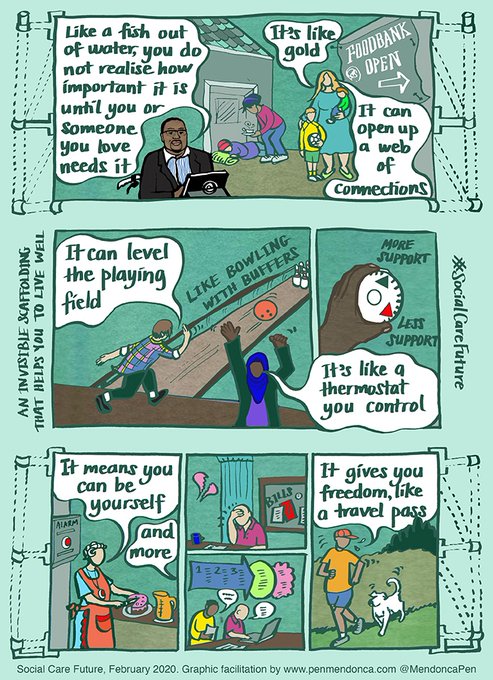
In conclusion
A tragedy is unfolding for people living in our care homes. Those responsible must be held accountable. Its causes must be confronted and major changes made. It would be further tragedy if the work needed to achieve public support for the reform and financing to secure a better social care future was undermined further still by the continued failure o shift public thinking and to build enduring support for change.
In the next few weeks we’ll begin the next phase of our research to better understand how we can talk about care and support in a way that enlists public support and understanding. It won’t be easy, but I look to other fields that have won change by shifting the way an issue is understood, the feelings it creates and the values people attach to it, from childcare to equal marriage, and I see no good reason why social care cannot begin to make this journey too. All of our futures depend on it.
About Neil Crowther
Neil Crowther is an independent expert on equality, human rights and social change with a particular interest in working to secure the rights of disabled people.

Check out Social Care section with useful resources and the latest Social Care News stories here >>

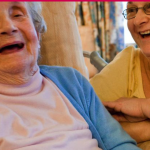



No comment yet, add your voice below!